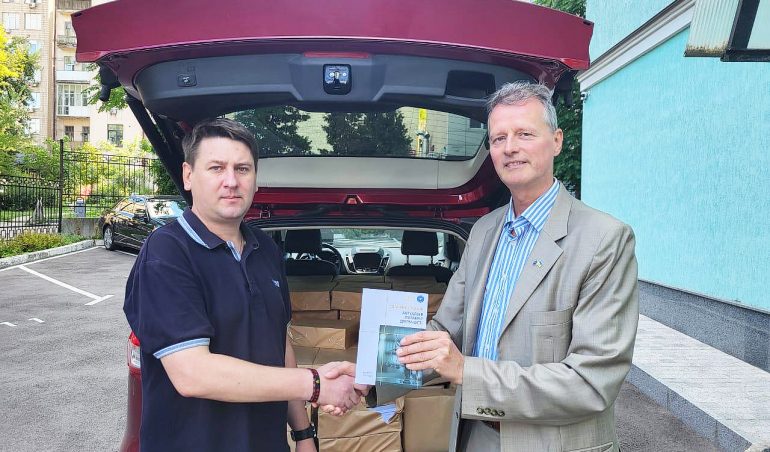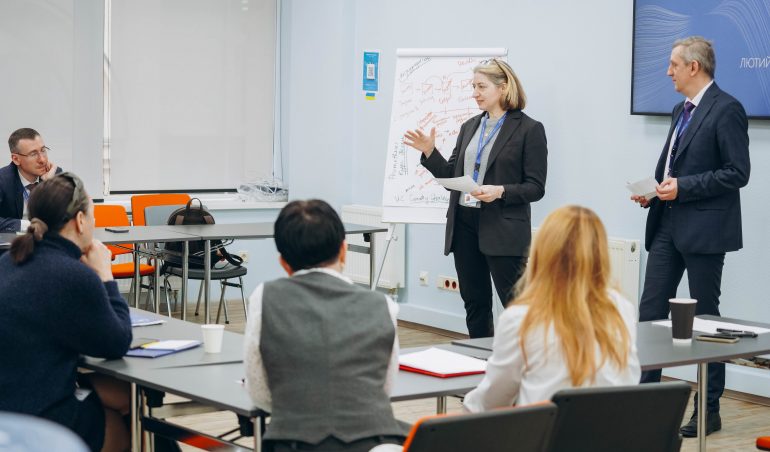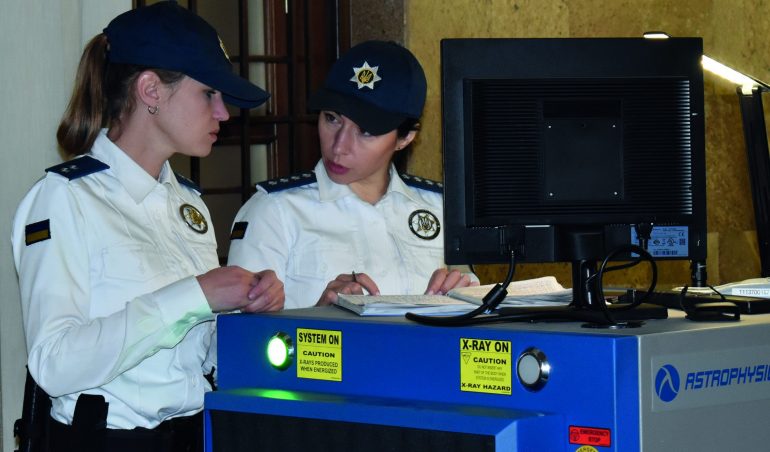Criminal Justice practitioners meet publicly to ‘JustTalk’ about reform
November 03, 2020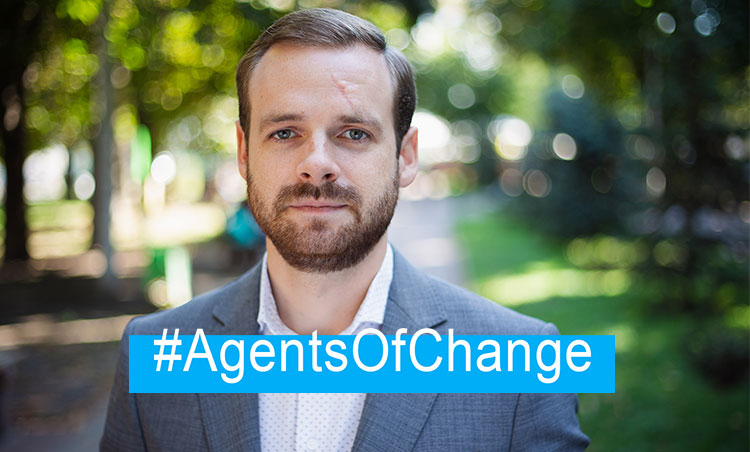
It has now been a year and a half, since April 2019, that this singular club regularly meets in the Ukrainian capital to talk about the state of play of criminal justice reform. But the content of the professional discussions held between these renowned investigators, prosecutors, and judges is a mystery to no one. On the contrary, in full transparency, all of their conversations are broadcasted in an interactive manner on their Facebook page (sometimes live) and opinion articles written by these judicial experts are shared on their blog platform to address the progress in the reform.
JustTalk is nothing else than a conversation club turned into an advocacy project thanks to the idea and the energy of civil society experts and criminal justice professionals, initiated by the International Renaissance Foundation with the Centre of Policy and Legal Reform (CPLR) and the Expert Centre for Human Rights (ECHR). Expert in the CPLR think-tank, Eugene Krapyvin here answers a few questions on how this platform became a reference of peer-to-peer open dialogue in the Justice sector.
First, could you explain in a few words what is the “JustTalk” platform?
Eugene Krapyvin: “JustTalk” is a platform where criminal justice professionals (e.g. investigators, prosecutors, judges) discuss problematic issues in their work. They can be from the Supreme Court, from the Anticorruption Court, the Prosecutor General’s Office or the National Police of Ukraine (NPU). So far, we have been focusing mostly on the pre-trial investigation, on the judicial stage of hearing the cases. But in the future, we want to spread to wider issues.
We call it “JustTalk” because it is really about “just talking”, making small talk like after a coffee break. We are an informal club, we do not suggest any amendments to the law. This word “just” also refers to the Latin jus, the Law — talks about the Law. It has a double meaning.
What is the story of this dialogue platform? What was the main idea of this initiative?
E.K.: As civil society organisations, we are in possession of a lot of research work on the criminal justice system, for instance on the role of prosecutors in pre-trial investigations, the role of the special anti-corruption prosecution office, the problems with people being arrested or the role of investigative judges. We issue a lot of conclusions, recommendations, and we try to communicate them with the heads of law enforcement bodies.
Most of these leaders of course agree that problems exist and that they should be solved. But no remedial actions were taken. That is why we decided to change our tactic and started to talk with practitioners, people who work on the ground, who also hope for criminal justice reform and are ready to speak publicly about it.
In our exchanges, we try to address all the topics with three different viewpoints: the investigation, the prosecution, and the judgeship. Previously, we noticed it was very rare these three dimensions were gathered in one panel. We want to unite the justice professionals around the criminal justice issues in order to make them find solutions together.
How do you organise this kind of dialogue?
E.K.: The first product of JustTalk is of course the offline meeting of the club. The vast majority of participants are directly working in the courts, but we also invite scientists, experts, and attorneys — people who can add more details on a specific issue, with empiric data. After these meetings that can be quite long (around 3 hours), we produce shorter videos (1 hour usually) that are compendia of the most interesting issues and theses raised during the conversation. Usually, participants have opposite views. After the meeting, we also invite them to write opinion papers that we eventually publish on our JustTalk social media platforms to continue the discussion online.
“They are professional workers and they try to find solutions on their own, without waiting for the Parliament or the Government administration” (Eugene Krapyvin)
What type of audience are you trying to reach with these videos?
E.K.: Our target audience is the professional practitioners from the Justice system, especially those who are in the regions and cannot participate in the event. Under the COVID-19 quarantine, we also adapted our meeting format with videoconferencing, allowing us to include them more in the debate. We also target the Justice sector as a whole, like lawyers, attorneys, legal consultants, Law or political sciences teachers and their students, and of course the media and the political representatives. We want them to understand the ins and outs behind criminal justice reform. It is also a way to fight against the stereotypes the civil society can have against judges or police officers, to show their level of professionalism and capacity to enrich the debate. These people are professional workers and they try to find solutions on their own, without waiting for the Parliament or the Government administration.
6 years after the Revolution of Dignity, what is your point of view on the actual situation in Ukraine on criminal justice reform?
E.K.: In Ukraine, the criminal justice system is one of the key reforms that happened after the Revolution of Dignity. From my personal point of view, progress was made, especially in the prosecution offices — and more especially in the regions because the central level still suffers from political influence. On the local level, prosecutors became more independent and it is a huge point. In criminal procedures, a lot depends on them (not from the investigators): they sign all the key documents and evidence that will go to the trial. The reform is going more slowly with NPU.
The criminal policy is starting to formulate in Ukraine and to become more efficient: on drug crimes, crimes against property, political crimes… The Prosecutor General’s Office is also now identifying new priorities like crimes against health or crimes against the person. Of course, we all want this criminal justice reform to come to an end. Unfortunately, it is also a problem of politics and a lack of resources. But in the last six years, since the Revolution of Dignity, the situation is not the same and we did make some progress.
CPLR think-tank aims to strengthen the rule of law and good governance in Ukraine. Could you explain these two concepts for the broad audience?
E.K.: For the last 20 years, the CPLR think-tank has tried to implement the rule of law and good governance principles in Ukrainian society. Through the glasses of criminal justice, “rule of law” only means the due process of law, that proper procedures are guaranteed. If we can provide for every suspect the totality of his rights, if we can follow all the legal procedures, if the law responds to the Constitution principles, then it is the rule of law. Among our law enforcement counterparts, we noticed an allergic reaction to the notion of “human rights”: it evokes for torture or for other abstract categories. That is why we choose to talk about the due process of law: every suspect should have a lawyer or an attorney because it is the legal procedure.
“We need to understand that it is not enough to appoint the head of a law enforcement agency just because it is a good person with a good name” (Eugene Krapyvin)
Good governance is when you build democratic institutions without talking about the persons. In Ukraine, we have the opposite way with names that are more important than the institutions they are associated with. When we talk about reforms, about the President, the Government or the Parliament, we always talk about names, reputations, etc. But we need to understand that it is not enough to appoint the head of a law enforcement agency just because it is a good person with a good name. For these positions, we should provide the qualifications for each candidate, open a wide and transparent competition. And we should not make some ad hoc decisions, change the rules for a specific person or a specific situation. In the end, everyone should obey the same rules.
What would be your message for Ukrainian citizens who want to join this effort in criminal justice reform or just contribute to making things change?
E.K.: Since the Revolution of Dignity, every citizen now understands that he can influence the local government or the national government. And a lot of legal instruments were established since 2014 to allow people to influence democratic institutions. Reforms are by no means confined to politicians, civil society also has a key role to play.
For the criminal justice sector, we assessed more and more people in the regions participating in commissions, competitions, processes to hire or attest the police officers and the prosecutors… In your regions, I invite everyone to check the information on the internet or on social media about how to participate in this democratic monitoring of the police and the prosecutor offices.
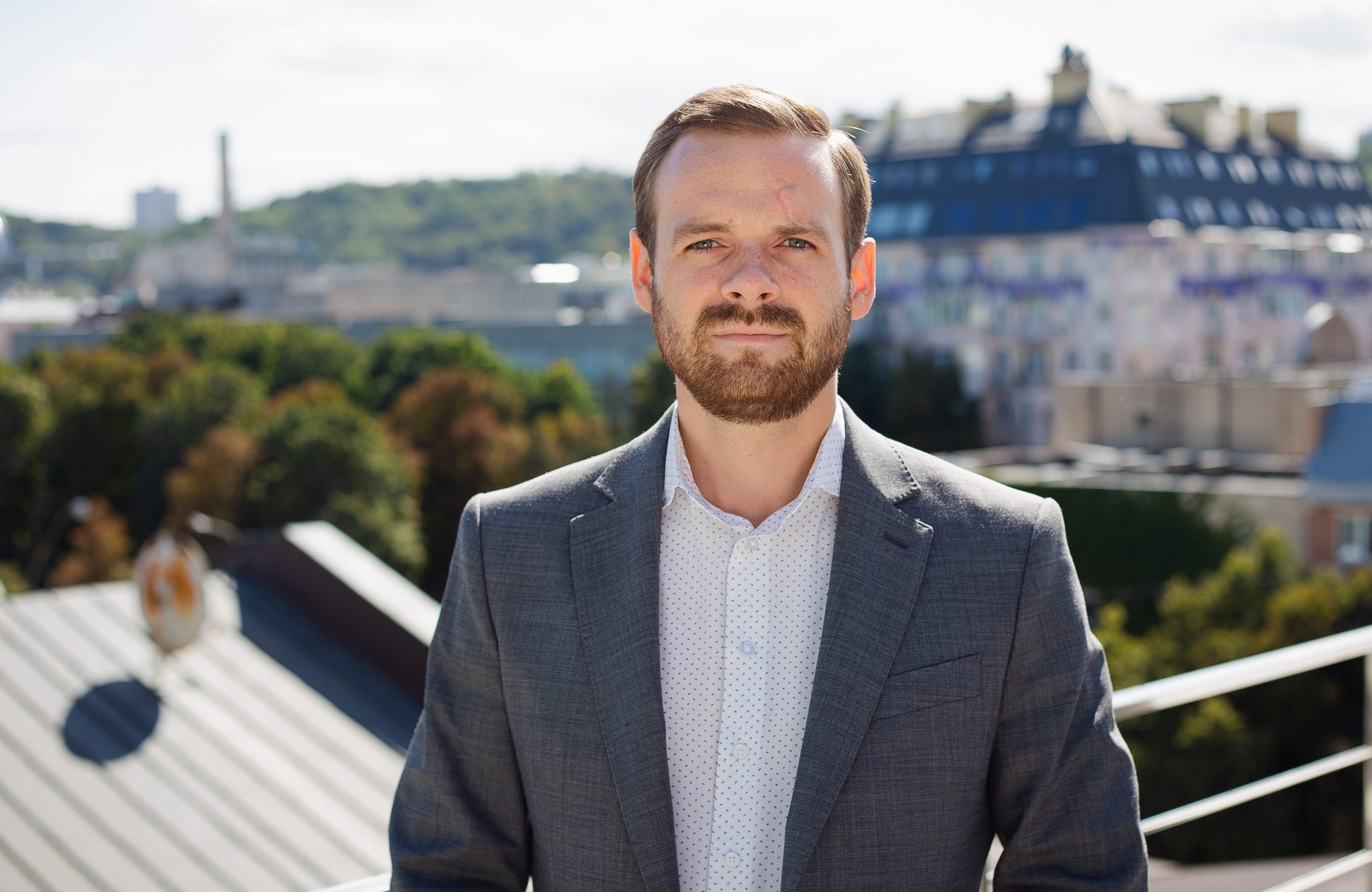
*The views expressed here are the interviewee’s alone and do not necessarily reflect the position of EUAM.



